Rising fuel prices can cause headaches for retailers, not least because they make forecourts a more attractive target for crime.
The cost of drive-offs at UK forecourts is growing, representing 82% of industry financial losses in 2006, according to the latest figures by the British Oil Security Syndicate (BOSS). And with prices having broken through the £1-a-litre barrier for unleaded, the practice of driving off - or ’bilking’ - can only be looking increasingly attractive to criminals.
BOSS states that bilking cost the industry an estimated £30m in 2006 - that’s £3,000-a-year per forecourt in the UK. As reported last month in Forecourt Trader, bilking cost a whopping £247,000 per 100 sites assessed by BOSS to compile its 2006 Forecourt Crime Statistics. This represented a rise of 7.4% on the previous year’s figures.
Weapons-related crimes at sites are also growing, along with burglary and incidents involving physical violence and robbery. Overall, BOSS estimates that crime cost the UK forecourt industry £28.9m during 2006, up from £26.3m in 2005.
And forecourt staff are, unfortunately, in the front line - according to the Convenience Tracking Programme survey by HIM, 21% of forecourt staff feel their security or safety has been threatened inside the store in the last three months. Meanwhile, the average forecourt worker reported 26 incidents of crime, such as theft and vandalism, on their site in the past 12 months.
So it’s never been more important to keep up-to-date with the latest developments in forecourt security, and many systems are becoming more affordable for smaller independents. There are many ways for retailers to protect themselves, their staff and their business from crime, including CCTV and even going so far as to invest in the Drivestop equipment which - ultimately - slashes the tyres of vehicles involved in a drive-off.
However BOSS insists one of the most effective ways remains its own campaign, Forecourt Watch. This scheme, tailored to individual forecourts, focuses heavily on drive-offs and customers who claim to have no means to pay on site. It currently operates in more than 70 areas of the UK.
According to Kevin Eastwood, executive director of BOSS, the scheme has cut forecourt crime on average by more than 50%. It works by encouraging local agencies and police forces to work together. If a retailer is a victim of crime they fill out a paper-based report as soon after the incident as possible and send it to police. These standard forms are designed to give police the specific information they need should the case go to court.
BOSS has also been trialling an exciting new development aimed at cutting crime even further - and at taking some of the pressure off the retailer and the police. The enhanced scheme, which Eastwood stresses is in its early stages and is still a trial, involves sites in Hertfordshire. The crime reporting forms have been adapted, and instead of reporting the crime to police, retailers go directly to a BOSS call centre. Eastwood explains: "The retailer calls the BOSS call centre and states the nature of the crime, whether it’s a drive-off or someone saying they have no means to pay."
If it’s a drive-off it’s straightforward and a BOSS call centre agent types the report into the system and sends it straight to the police. This aims to cut down on potential pitfalls, such as police not being able to decipher bad handwriting on reports. But if it’s a customer with no means to pay, then BOSS has something new up its sleeve.
Eastwood says: "If a retailer gets a customer who says they can’t pay they find out the customer’s details such as name and address and call the BOSS Fuel Payment Centre. They tell us they have someone in their shop who says their name is, say, John Smith, and the customer completes a special form to say why they can’t pay.
"The retailer tells us how much petrol they have taken from the pump, the time and date, along with their name and address and vehicle details. The Boss Fuel Payment Centre then checks the information against the database to verify it. The customer is free to go, and they are told they can call a number and use their credit card to pay off the debt within 24 hours - this call centre is available 24/7. If they fail to pay within 24 hours a £10 admin fee is added as a penalty. And if after seven days and three text message reminders they still haven’t paid, the debt is passed to a civil debt recovery company. And if they still don’t pay there is every possibility they will be taken to court."
There are 73 garages involved with the BOSS trial, all centrally monitored so BOSS can see if the same customer repeats their actions at other sites.
Says Eastwood: "If someone says they have no means to pay this would normally be considered a civil debt, and is technically not a crime. But if you can prove multiple occurrences by the same person, even at different locations, then intent to defraud or deceive is easier to prove and the police can get involved. That’s what we’re working towards. With this, it suggests there is proof of deception and we can pass the information to police. It’s designed to make it more difficult for people who don’t pay for their fuel - but we won’t persecute honest people who really have left their wallet at home."
The trial started last April and Eastwood describes the results as "very encouraging", with Hertfordshire police seeing a reduction in the number of reported incidents compared with the same period the previous year. The project and its costs will need full in-depth evaluation though before BOSS decides whether it should be rolled out nationwide.
BOSS chairman Peter Mellins adds: "BOSS has found that when a forecourt retailer introduces initiatives to reduce drive-offs, then other crimes such as shop theft and staff intimidation also tend to reduce."
On the equipment side, experts say good quality CCTV systems are becoming increasingly important on forecourts. And, as digital technology becomes more affordable, video recording equipment is being replaced with digital recording systems. One company involved in this area is Honeywell Video Systems, which has been developing its upper-end digital video recorder, the Fusion DVR. James Somerville-Smith, Honeywell’s UK market development leader - EMEA, says: "We’ve done a lot more work adding analytics to video systems. This can detect unusual behaviour on site, such as if anyone leaves a bag on the forecourt or is acting suspiciously on site. This capability has now been integrated into Fusion and the retailer can select the settings they want, or we can develop more unique algorithms specifically for them."
The system can detect suspicious behaviour and then alert staff, such as if a customer repeatedly reaches over to take items from a shelf. An alarm sounds to alert the staff member, and when the customer comes over they can check they are paying for the same number of items they removed.
Jeremy Kimber, Honeywell’s UK marketing leader, says: "The video analytics, Active Alert, can be sold as an additional module for Fusion or as a stand-alone package on the server. It’s designed to turn CCTV into a system that is pro-active rather than being reactive."
Neill Friend, commercial director of Indigo Systems, adds that it’s not just crime from external sources that retailers need to consider. He says: "Staff fraud is another reason why retailers may wish to install or upgrade their CCTV system. Our Softoption Developments CCTV Controller software can interface with security cameras to log images of tills and their cashiers for all till-related events. This enables retailers to see exactly how cashiers process each transaction."
Another growth area in forecourt security concerns Automated Number Plate Recognition (ANPR). Dave Lister, of specialist installation company CBES Security, says this technology is becoming increasingly affordable to smaller, independent retailers, and can provide impressive results.
He says: "These systems flag up to the attendants at the forecourts if a certain car has been involved with a drive-off or with someone who has not paid for fuel in the past. In larger companies, there will often be live links between the system and the police. The people who lose out on this type of system are often the smaller forecourt operators, but it’s now very easy for them to copy it and keep their own databases."
ANPR systems have come down in price significantly and standalone forecourts can use them to record every vehicle on their premises with a camera and therefore run their own warning system. Then if they are alerted to a problem vehicle, the member of staff can refuse to authorise the pump until the customer authorises payment." According to Lister, basic ANPR systems cost between £2,000 and £4,000, including software and installation.
And finally, one former independent retailer has built a business out of getting revenge on the drive-off merchants. They drove him out of business as a retailer, but now he’s having the last laugh because business is booming. Jaginder Mudhar is managing director of Drivestop, which offers a package that consists of a series of on-site warnings for would-be offenders, including posters, flashing lights and the pièce de résistance - floor plates or ’stingers’ which can be placed at site exits. Once activated by the retailer, these slowly deflate vehicles’ rear tyres, letting the driver get far enough away from the forecourt not to be able to take out their anger on the cashier, but near enough to be caught by the police.
It took six years to develop and has the support of local police and, according to Jaginder, known as Jag, the idea is really taking off.
He says: "We’ve just done another installation for Total UK, which has Drivestop on four of its sites now. The system is operating in 12 sites around the country - we’ve been so busy we can hardly keep up with demand!
----
=== General security advice ===
? Acknowledge customers as they enter the premises. Kevin Eastwood of BOSS says: "Simply making eye contact with people entering the shop means you’re aware that they are there. People are less likely to shoplift if they think you’re watching them."
? Display CCTV equipment visibly as this will help act as a deterrent.
? Make sure cameras are cleaned regularly and are not moved. One police advisor working with BOSS recommends retailers ensure cameras provide clear images of number plates as well as the faces of vehicle occupants and anyone entering the forecourt shop.
? The police officer also advises that staff should be trained not to release fuel to customers wearing helmets, hoods or balaclavas.
? Change the tapes used for security monitoring regularly. Eastwood recommends keeping at least 28 tapes and changing the set every 12 months.
? When choosing CCTV, be specific about what you want. Don’t leave it up to the supplier because what they provide might be different to what the police recommend.
? Have equipment like CCTV cameras installed by experts. Honeywell’s Jeremy Kimber says: "One system might work brilliantly on one site but be useless on another, and this could all be down to the positioning of the cameras. It’s worth asking for expert advice."
? Take photos of any graffiti before you remove it from your site.
? Report any racially-motivated incidents against forecourt staff, whether verbal or physical, promptly to police.
----
=== Case study ===
Selston Motor Services, Nottingham
Graham Saxton has run Selston Motor Services in Nottingham for 28 years. He has been using CCTV for 15 years but a year ago ugraded to the integrated Indigo Systems’ Insight CCTV security solution.
Insight works by digitally recording data from the forecourt and shop, such as capturing images of customers using the pumps, and linking to transactions on the till. Images can be viewed on the till, in the back offices or online from any PC. Graham says: The main advantages of Insight are the instant data capture of incidents. We also find it really useful for managing enquiries where customers query change given, for example from a £10 or £20 note. This happens often and the photographic evidence is quick and easy to obtain.
"It’s also really useful for dealing with drive-offs and for highlighting repeat shoplifters to staff. We print out an image of the individual and circulate it to all staff."
Graham says he also uses the system to help combat staff theft through the monitoring of fraudulent transactions.
----
=== LCD security/advertising screens ===
One innovation which is capturing the imagination of forecourt operators is a combined LCD public display screen and advertising monitor. According to CBES Security’s Dave Lister, CBES engineers recently installed a number of the devices in some Asda forecourts but he says they are suitable for any size forecourt business and have the potential to pay for themselves.
He explains: "These are flat screen monitors that hang from the ceiling. They have an integrated security camera and so can show on the screen who is walking into the shop or onto the forecourt. But when they are not being used to show security pictures they can run advertising for current special offers or from a third party. This is a new idea that has come about because LCD TVs are now much cheaper."
Lister says the screen can also run a combination of the two images - with security pictures on screen with adverts running in the corner of the screen.
One of the ranges CBES Security has been working with is the Vista VFSM20/DS. According to Lister, the company can provide a 20" screen, fully installed and with all the relevant software, for about £1,500.
All the retailer needs is a CCTV system which has space to accommodate the extra camera.
He adds: "It’s simple to install and use, and provides a very visible deterrent to forecourt crime which has the potential to pay for itself with advertising.
"Screens can also be tailored to individual retailers, for example with colour and a strapline."






















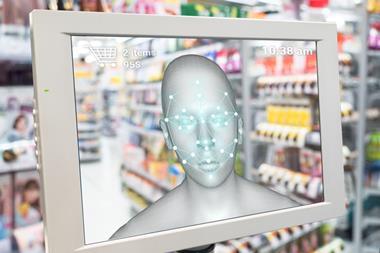
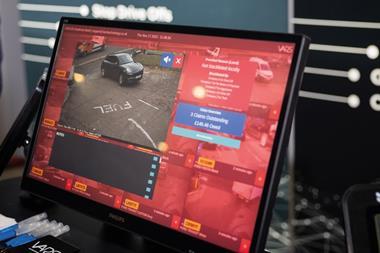
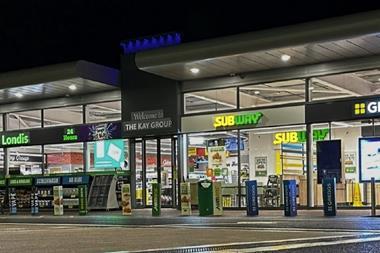

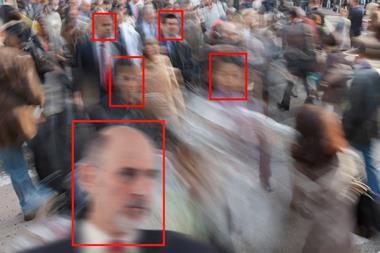
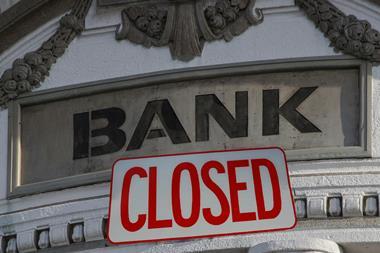
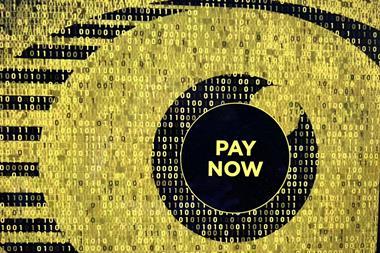
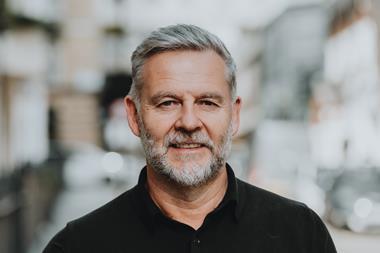
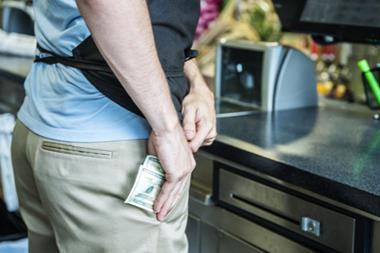
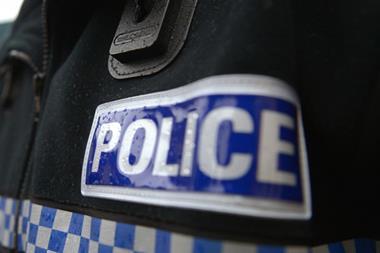
No comments yet